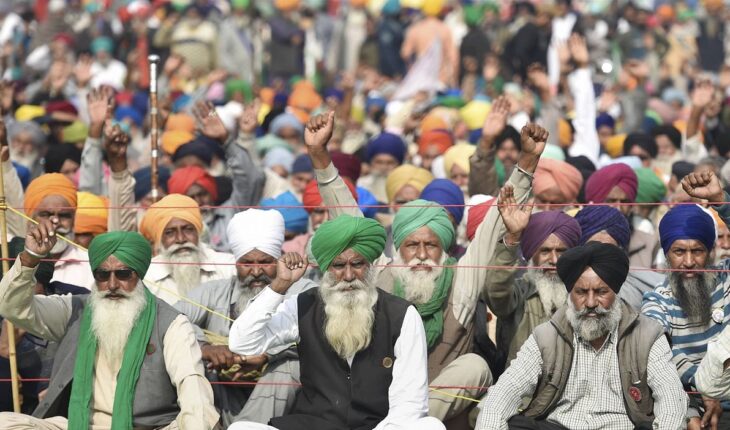In a vivid display of dissent, thousands of farmers from Punjab have congregated at the border with Haryana, their passage to Delhi barricaded by authorities. Their demands are clear: a legally guaranteed Minimum Support Price (MSP) for crops, debt forgiveness, the revocation of international agreements detrimental to agriculture, and a baseline pension of ₹5,000 for both farmers and agricultural laborers. Echoes of these demands trace back to the mass protests of 2021-22, which led to the withdrawal of three contentious agricultural laws by the BJP-led central government. The movement, led by the Samyukt Kisan Morcha (SKM), a non-political faction diverged from the original protest leaders, underscores the persistent divide among agrarian communities across Punjab, Haryana, Uttar Pradesh, and Rajasthan. Concurrently, multiple protests ripple through the region: from the farmers in western Uttar Pradesh grappling with the repercussions of the Jewar airport project and the Yamuna Expressway, to the land acquisition dissent in Haryana’s Sonipat. The original SKM alongside several trade unions called for a comprehensive rural and industrial strike on February 16, amplifying the chorus of demands with the addition of labor code repeals. Negotiations have commenced with Punjab’s farmers, yet the prospect of a legal MSP guarantee remains bleak. The plight of subsistence farmers in less affluent regions, sidelined by this scheme, underscores the urgent need for a reformed approach to public support in agriculture. As the Lok Sabha election looms, the political resonance of these protests cannot be ignored. India’s agricultural sector is at a crossroads, necessitating a departure from market dependency towards a robust model of government-led support. Achieving this requires broad political dialogue and a commitment to diversifying and enhancing agricultural productivity. The call for national consensus on reforming agricultural support is not just timely but imperative, underscoring the critical intersection of politics, policy, and the plight of the Indian farmer.
Rural resilience:Farmers march for rights and reforms
|
February 17, 2024 |





